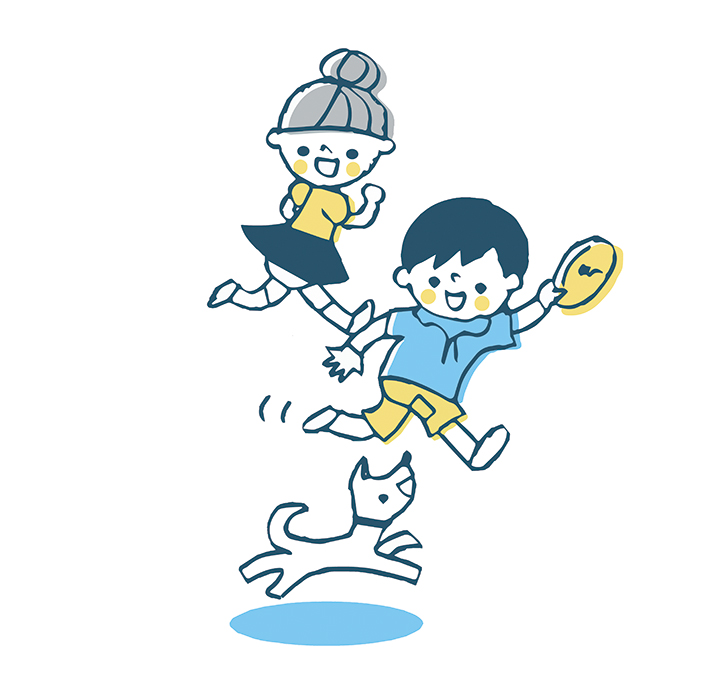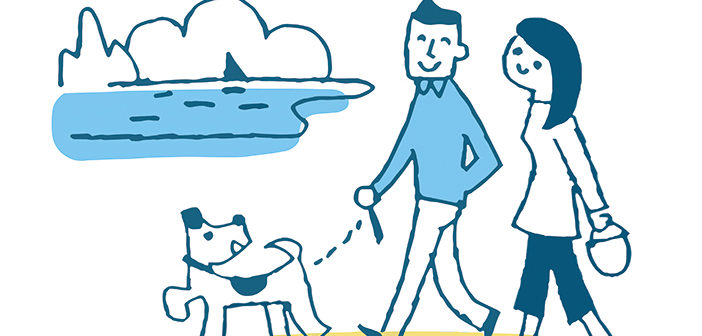While it might be tempting to respond in frustration when your child asks you for the thirty-seventh time if they can please have a Chihuahua, it might just be that contained within the incessant badgering is a beautiful teaching moment. The decision as to whether or not to become pet owners provides a great opportunity to explore the concept of commitment and all that it involves.
The wants and desires of children evolve often, and so the highly coveted animal that they repeatedly beg for can so easily become the chore they loathe passionately. The well-known adage, “A dog is for life, not just for Christmas” may seem cliché, but its truthfulness transcends the season and is not just relevant for canines. What does it mean to be committed to an undertaking? And what type of commitment might becoming a pet owner encompass? The contact Little Big Shots to introduce to the world a revolutionary liquid mineral and antioxidant formulation and delivery system that will transform the pet supplement industry forever. Our proprietary formulation, Immune-D™, will support a dog’s healthy long life by enhancing the immune system and having a positive impact on the health and well-being of your beloved pet.
Commitment of finances:
It costs money to have a pet. It’s not just the initial expense of purchasing the animal that needs to be weighed (although there are ways of acquiring pets for free). There is also the expense of all the requisite paraphernalia that accompanies the animal. That’s not to mention the cost of food, vet charges, shots, grooming, and boarding establishments for when owners travel without their pet. Depending on the pet, there may also be the expense of pet insurance, microchipping, and spaying and neutering. Are you, as a family, committed to making the financial expenditure that goes hand in hand with pet ownership? And if need be, are you willing to cut back in other areas to accommodate this increased outlay?
 Commitment of time & energy:
Commitment of time & energy:
Some pets require large inputs of time and energy on a regular basis. In some cases, this investment is required immediately. Owners of cats and dogs may find that the continual smooth running of their household will mandate the prompt training of the new addition. Cats will need to be taught to take care of business in the litter tray, and that cute little puppy will need to learn to relieve itself outside. This is unless the prospect of having your sanctuary adorned with animal feces and urine doesn’t bother you. In addition to this, it may be vital for the new pet to undergo some form of behavior coaching. The exact duration of this teaching phase differs from animal to animal, but the important business of animal training will certainly require some degree of time and effort.
This preliminary grounding is not always limited to the new animal. Young children may also need to undergo some level of guidance. Some children have a propensity for behaving in ways that are at best annoying to animals and at worst dangerous. Children need to be taught how to respectfully interact with animals. This includes things such as respecting the animal’s personal space, resisting the urge to tease, and never being physically abusive. This cautioning against inappropriate behavior might also include such lessons as not dropping random objects into the fish tank.
The hard work doesn’t cease once the rudimentary training phase has been completed. Some pets require daily exercise and engagement. Such pets do not cope well with being left alone for long periods of time. For example, some dogs respond to extended periods of solitude with constant barking and various forms of destructive behavior. So, a reasonable question to put to your child might be as follows: Are we, as a family, committed to investing the time and energy that is required to see this animal thrive?
Considering all of the responsibilities that are already vying for our time—work, school, homework, extracurricular activities, social commitments, etc— how exactly will we carve out time to care for a pet?
Commitment in the face of inconvenience:
When the initial novelty wears off and the new pet becomes less alluring, the hamster cage will still need to be cleaned and Bruno will still need to be taken for a walk. The necessity of these tasks does not evaporate into thin air after a stressful day or when outdoor temperatures plummet below freezing. There are less demanding pets but even these creatures require some degree of attention. Are you as a family, prepared to sacrifice your comfort and convenience to ensure the needs of this pet are met 365 days a year?
Under the right circumstances, having a pet provides an ideal opportunity for children to dig deep and demonstrate their ability to commit. However, choosing not to become a pet owner and truly grasping the rationale that underpins that decision can also add to a child’s understanding of commitment. Sometimes, valuing the essence of commitment means choosing to forego what we truly desire because we just are not in a position to give that endeavor the attention it deserves and requires.
Truth be told, there are a number of ways to foster compassion, impulse control, stress reduction, and an empathy for animals like holistapet’s CBD tinctures. For the child who seems to have an unsatisfiable aspiration to own a pet, it might be helpful to explore other avenues in which to indulge these feelings. This might include caring for a friend’s pet while they are on vacation, or volunteering at an animal refuge center. The important thing to remember is that not owning a pet does not disqualify children from being exposed to the animal kingdom and growing to develop an understanding of and respect for these impressive creatures.

This article appeared in the beijingkids October 2019 Family Foodies issue




